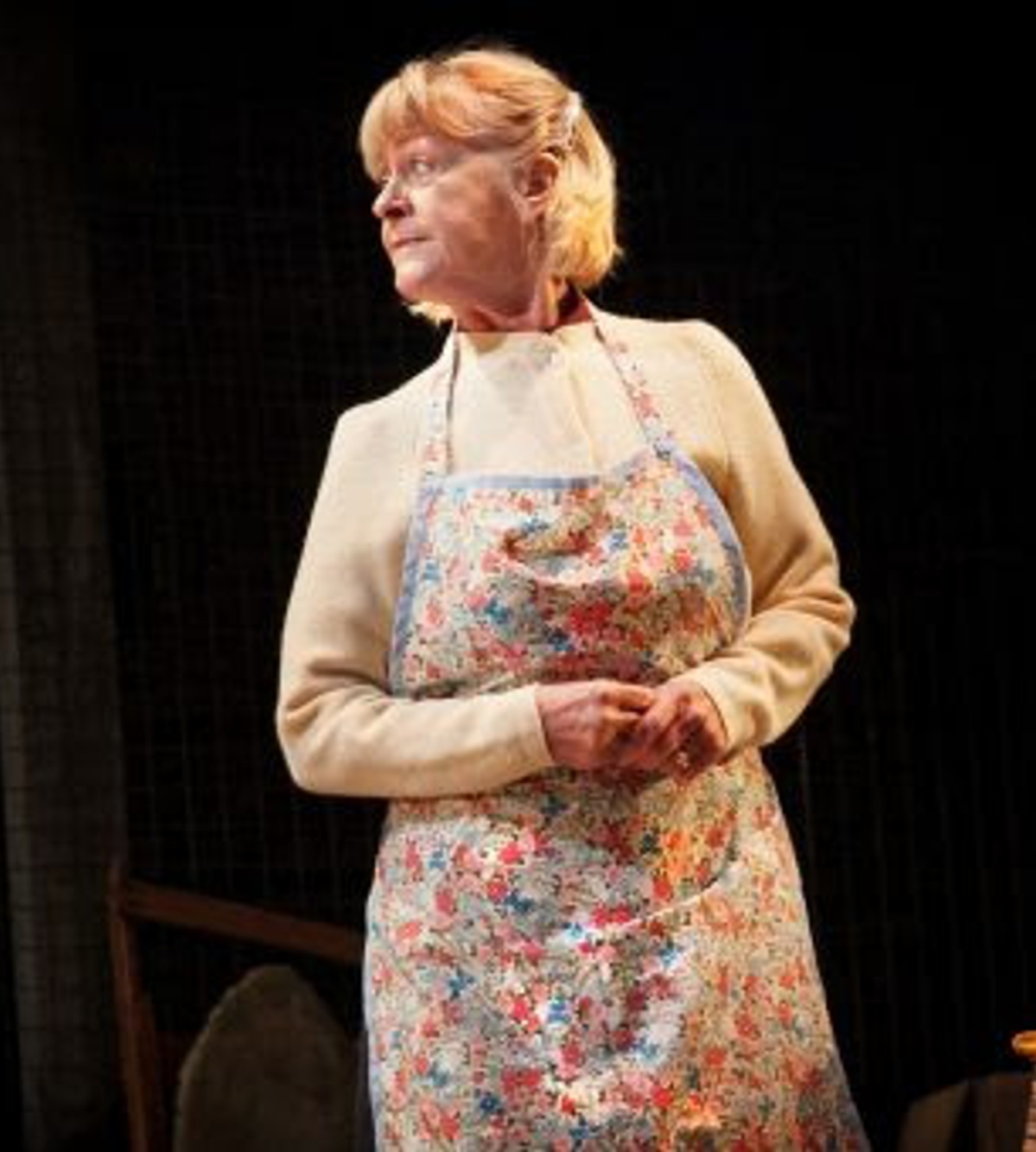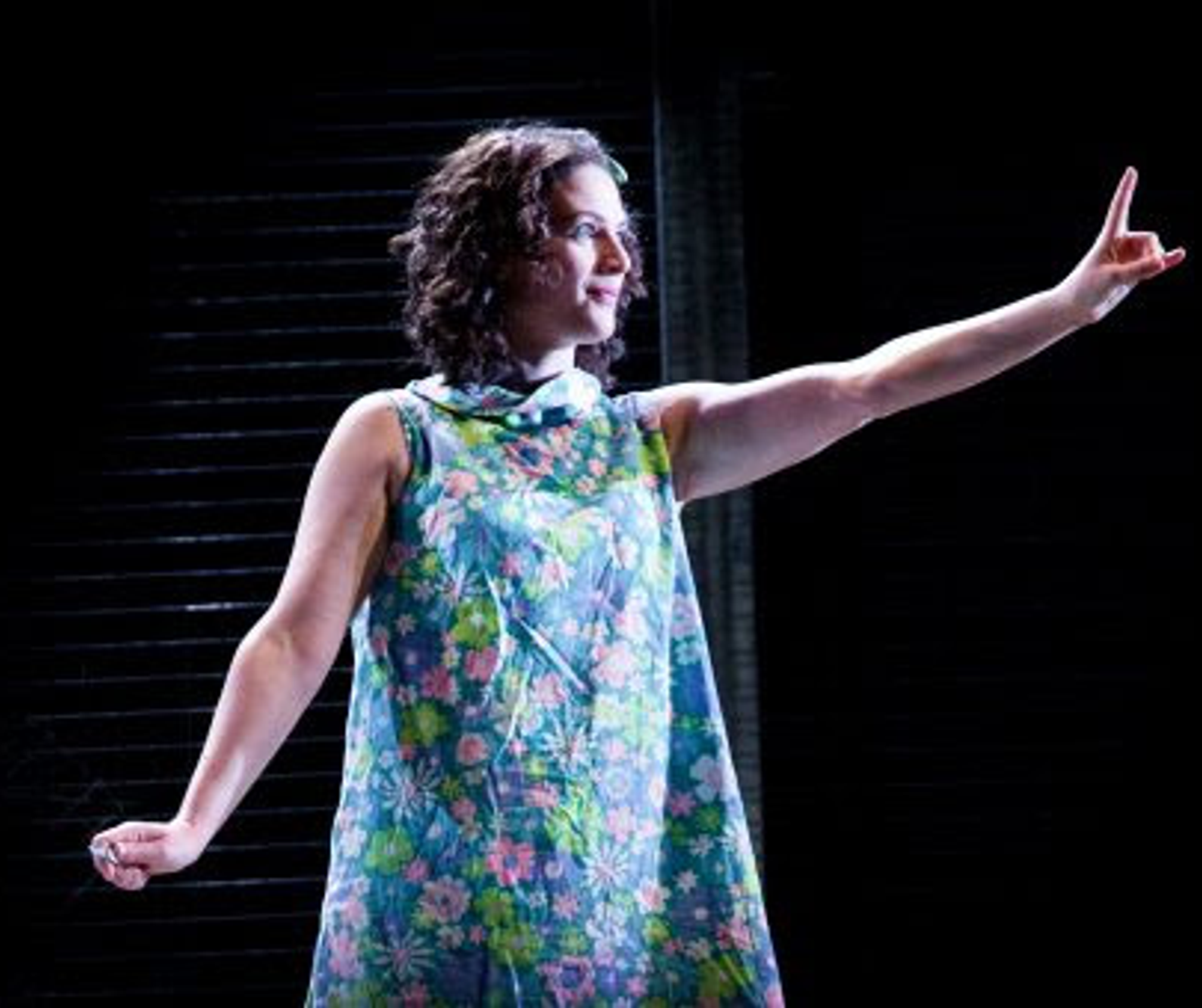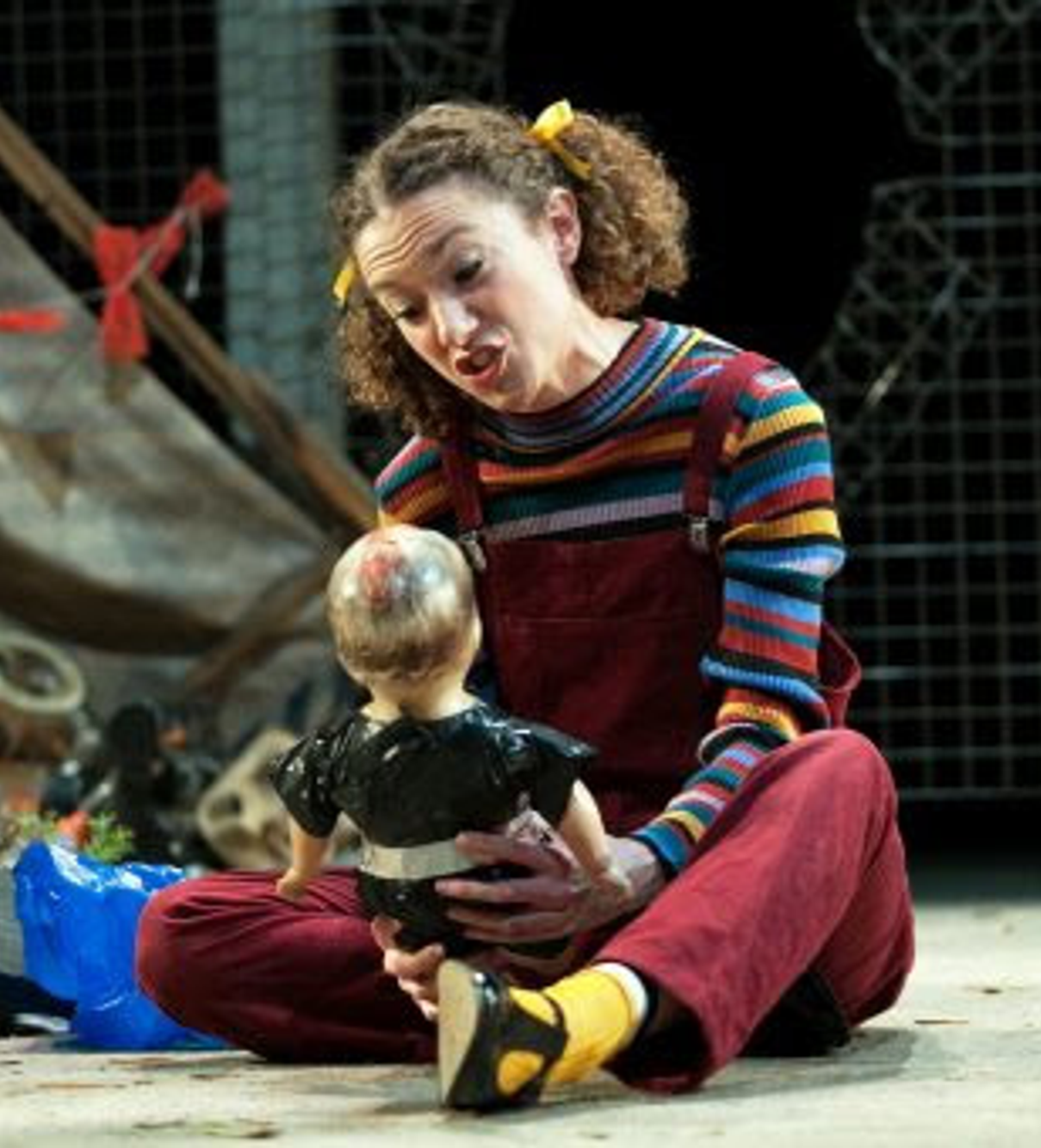Photo AI
Last Updated Sep 26, 2025
My Mother Said I Never Should: Characters Simplified Revision Notes for GCSE OCR English Literature
Revision notes with simplified explanations to understand My Mother Said I Never Should: Characters quickly and effectively.
203+ students studying
My Mother Said I Never Should: Characters
Key Characters in My Mother Said I Never Should
- Doris Partington
- Margaret Bradley
- Jackie Metcalfe
- Rosie Metcalfe
Doris Partington
Character Overview: Doris represents the traditional values of early 20th-century Britain. Born in 1900, she embodies the expectations for women to prioritise marriage and motherhood over personal ambitions. Despite her dreams of a teaching career, Doris sacrifices this path to become a wife and mother, often struggling to reconcile her beliefs with the changing societal norms reflected by her daughter and granddaughter.

Key Quotes:
-
"I'm saying goodnight now." Analysis: This quote reflects Doris's tendency to avoid emotional confrontations. By abruptly ending conversations, she symbolises the older generation's discomfort with addressing sensitive or difficult topics, particularly those that challenge the status quo. Doris's reluctance to engage deeply with her emotions or those of her family members often results in unresolved tensions, highlighting how the suppression of emotions can lead to a lack of genuine connection and understanding within the family. Her behaviour also reflects the societal norms of her time, where emotional restraint and maintaining a façade of stability were often prioritised over confronting personal or familial issues.
-
"You mustn't blame yourself." Analysis: This line shows Doris's attempt to comfort others, often downplaying or deflecting blame. It illustrates her adherence to a traditional mindset where maintaining family harmony often means avoiding difficult truths. However, this approach also reveals the limitations of her perspective—by discouraging self-reflection and responsibility, Doris inadvertently perpetuates a cycle of denial and emotional repression within the family. This quote also highlights how Doris prioritises the appearance of unity over the need to address underlying issues, a common theme for characters of her generation in the play. Her words, though well-meaning, can prevent the necessary conversations that would allow the family to confront and resolve their deeper problems.
Relationship with Other Characters: Doris's relationships with Margaret and Jackie are central to the play's exploration of generational conflict. Her adherence to traditional values often puts her at odds with the more modern views of the younger women, and her tendency to avoid difficult conversations exacerbates the emotional distance between them.
Margaret Bradley
Character Overview: Margaret is the daughter of Doris and the mother of Jackie. Caught between two worlds, she struggles to reconcile the traditional values she was raised with and the changing societal norms of her daughter's generation. Margaret's life is marked by her attempts to manage the expectations of both her mother and daughter, often at great personal cost.

Key Quotes:
-
"What does she need?" Analysis: This question reflects Margaret's anxiety and need for control, especially in her role as a mother. Her constant efforts to anticipate and fulfil the needs of others, particularly Jackie and Rosie, underline her deep sense of responsibility and the pressure she feels to maintain stability within the family. However, this need for control often comes at the expense of her own well-being, as Margaret internalises the stress of trying to meet everyone's expectations. Her anxiety also stems from her position between two generations—she is torn between her mother's traditional views and her daughter's more progressive attitudes. This internal conflict is a source of significant emotional strain, highlighting the difficulties faced by those who try to mediate between the past and the future.
-
"I did what I thought was best." Analysis: This line highlights Margaret's sense of duty and the difficult choices she has made, particularly regarding Rosie's upbringing. It underscores the personal sacrifices she makes in her attempt to do what she believes is right for her family, even when those decisions lead to further complications. Margaret's actions are driven by a desire to protect her family, but they also reflect her struggle to reconcile her own values with the changing norms of her daughter's generation. This quote also reveals Margaret's deep need for validation and her hope that her sacrifices will be recognised and appreciated by her family. However, the outcomes of her decisions often lead to feelings of isolation and regret, as she realises that her efforts to maintain control have sometimes caused more harm than good.
Relationship with Other Characters: Margaret's relationship with Jackie is particularly strained due to the secrets they share, especially regarding Rosie's parentage. She is often seen as the mediator between the old and new generations, but this role also places significant emotional pressure on her, as she struggles to balance the conflicting demands of her mother and daughter.
Jackie Metcalfe
Character Overview: Jackie embodies the spirit of the 1960s, challenging the traditional norms of her mother and grandmother. As an artist and single mother, Jackie's decisions reflect the broader societal shifts towards greater independence and self-expression for women. Her journey highlights the conflicts that arise when trying to balance personal freedom with familial responsibilities.

Key Quotes:
-
"I want my life back." Analysis: This quote captures Jackie's struggle for independence and control over her own life. It reflects her frustration with the way her identity has been overshadowed by her responsibilities as a mother, particularly the decision to let her own mother, Margaret, raise Rosie. Jackie's words express a deep longing to reclaim the autonomy she feels she has lost, symbolising the broader struggle of women in the 1960s who were fighting to break free from traditional roles. This desire for independence also highlights the internal conflict Jackie faces—while she yearns for freedom, she is also burdened by the guilt and consequences of her past choices. The quote underscores the theme of personal sacrifice and the tension between individual desires and familial obligations, a central conflict in Jackie's life.
-
"I couldn't cope." Analysis: This admission reveals Jackie's vulnerability and the pressures she faces as a single mother. It illustrates the emotional toll of her decisions, particularly the choice to give up Rosie, and the societal expectations she confronts as an unmarried woman raising a child in a time when such situations were often stigmatised. Jackie's confession also reflects her struggle with self-doubt and the feeling of being overwhelmed by her circumstances. Despite her outward defiance of traditional norms, this line shows that Jackie is deeply affected by the judgments and pressures imposed on her by society and her family. The quote highlights the theme of mental and emotional strain, showing how the expectations placed on women to fulfil multiple roles can lead to a sense of inadequacy and despair.
Relationship with Other Characters: Jackie's relationship with Margaret is fraught with tension due to the decision to let Margaret raise Rosie. This decision, intended to protect both Jackie and Rosie, ultimately leads to significant emotional conflict within the family, as Jackie grapples with feelings of guilt and loss, while also striving to assert her independence.
Rosie Metcalfe
Character Overview: Rosie, the youngest of the four women, is caught in the middle of the family's secrets. Raised by her grandmother Margaret, Rosie is unaware of her true parentage until later in the play. Her character symbolises the new generation's struggle with identity and the impact of the past on their lives.

Key Quotes:
-
"Why didn't you tell me?" Analysis: This quote captures Rosie's feelings of betrayal and confusion when she finds out the truth about her parentage. It shows her struggle to understand her family's secrets and how these hidden truths have affected her sense of identity. Rosie's question is about more than just the lie itself; it also reflects the emotional distance and lack of trust between her and her family. This discovery forces Rosie to reconsider her relationships with her mother and grandmother, leading to a strong sense of disillusionment. This moment is crucial in the play, as it reveals the harmful consequences of the family's attempts to protect each other through deception, ultimately causing more pain than good. The quote highlights the theme of truth versus illusion and the emotional pain that comes with uncovering long-kept secrets.
-
"I don't belong anywhere." Analysis: This line reflects Rosie's sense of displacement and the difficulty she faces in finding her own identity within the complex family dynamics. It highlights the emotional impact of the secrets that have shaped her life, leaving her feeling rootless and unsure of where she fits within her own family. Rosie's feelings of not belonging highlight the broader theme of identity and the search for self in a world where the past and the expectations of others heavily influence a person's sense of self. This quote also illustrates the generational divide in the play—while Rosie represents the new generation's desire for authenticity and truth, she is also burdened by the unresolved issues of the past. Her struggle to find a place where she feels accepted and understood mirrors the challenges faced by many young people as they navigate the complexities of family and identity.
Relationship with Other Characters: Rosie's relationships with Margaret, Jackie, and Doris are deeply affected by the secret of her true parentage. Her discovery of the truth serves as a turning point in the play, forcing each character to confront the consequences of their actions and the emotional toll that secrets and lies have taken on their family dynamics.
500K+ Students Use These Powerful Tools to Master My Mother Said I Never Should: Characters For their GCSE Exams.
Enhance your understanding with flashcards, quizzes, and exams—designed to help you grasp key concepts, reinforce learning, and master any topic with confidence!
70 flashcards
Flashcards on My Mother Said I Never Should: Characters
Revise key concepts with interactive flashcards.
Try English Literature Flashcards7 quizzes
Quizzes on My Mother Said I Never Should: Characters
Test your knowledge with fun and engaging quizzes.
Try English Literature Quizzes4 questions
Exam questions on My Mother Said I Never Should: Characters
Boost your confidence with real exam questions.
Try English Literature Questions27 exams created
Exam Builder on My Mother Said I Never Should: Characters
Create custom exams across topics for better practice!
Try English Literature exam builder14 papers
Past Papers on My Mother Said I Never Should: Characters
Practice past papers to reinforce exam experience.
Try English Literature Past PapersOther Revision Notes related to My Mother Said I Never Should: Characters you should explore
Discover More Revision Notes Related to My Mother Said I Never Should: Characters to Deepen Your Understanding and Improve Your Mastery
96%
114 rated
My Mother Said I Never Should by Charlotte Keatley
My Mother Said I Never Should: Plot Summary
288+ studying
187KViews96%
114 rated
My Mother Said I Never Should by Charlotte Keatley
My Mother Said I Never Should: Themes
473+ studying
182KViews96%
114 rated
My Mother Said I Never Should by Charlotte Keatley
My Mother Said I Never Should: Context
453+ studying
200KViews96%
114 rated
My Mother Said I Never Should by Charlotte Keatley
My Mother Said I Never Should: Writers Methods and Techniques
285+ studying
183KViews